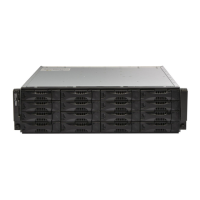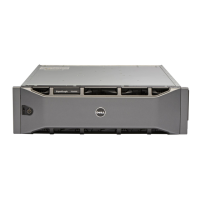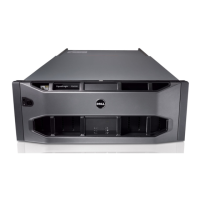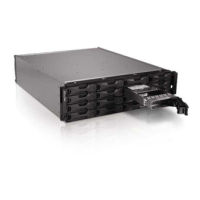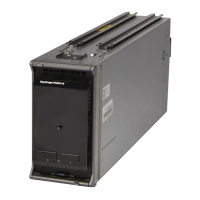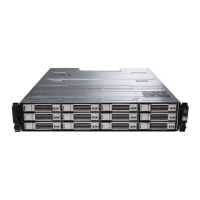Dell EqualLogic Configuration Guide v11.3
The recommended and space efficient guidelines for sizing replication reserves and delegated space
are presented in Table 14 below.
Local Reserve
(Primary Group)
Replica Reserve
(Primary Group)
105%
(b)
+ CR
x (# of Replicas – 1)
Delegated Space
(Secondary, for all replica sets
coming from single group)
Sum of all replica reserve sizes
for all volumes replicating to
that group
Monitor CR, adjust to lower
than recommended value and
continue monitoring.
(a) CR: ―Change Rate‖. For details on how volume changes affect replication space, see the Centralized
Replication section under Replication Configuration Options in the Group Manager Help documentation.
(b) Start with 105%, then add to that the maximum number of replicas expected to be stored in the replica set
minus 1, multiplied by the expected Change Rate.
Table 14 Replication Space Sizing Guidelines
3.3.7 Clustering
To support a shared storage environment, EqualLogic allows concurrent access to any volume.
Concurrent volume access is enabled on a per volume basis within the Group Manager or via CLI. The
EqualLogic array will not manage concurrent access to these volumes. Control of access to a shared
volume must be provided by means of access control software on each host that has access to the
volume.
By default, EqualLogic PS Series groups disable multi-host (shared) access to target.
If needed, you can enable multi-host access for a volume.
If you enable multi-host access to a volume, then proper I/O operation concurrency must be
maintained.
Warning: Failure to provide access control to a shared volume can result in data loss.
